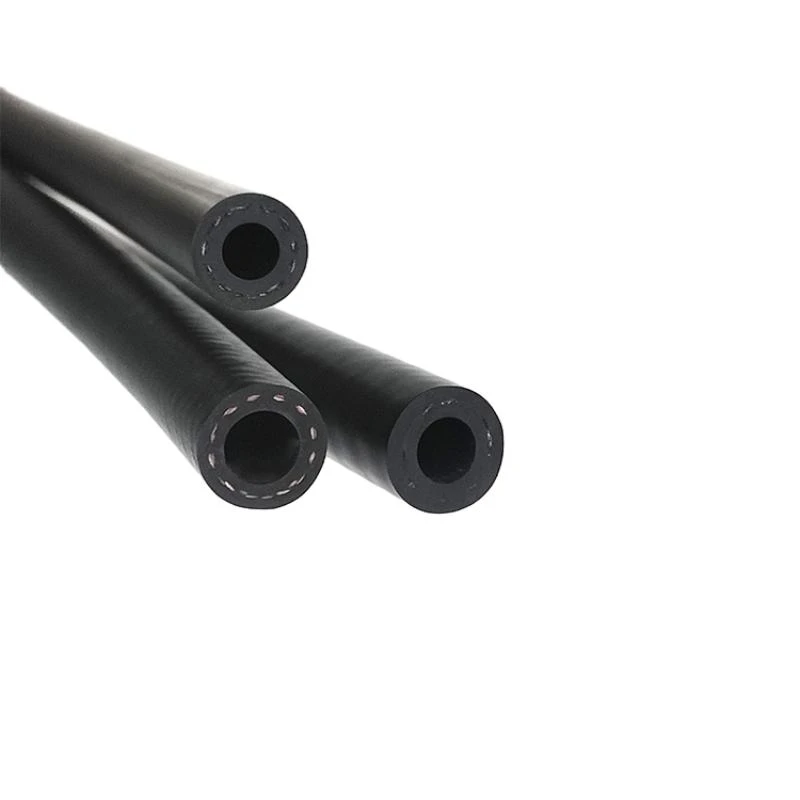automotive fuel hose
Des . 05, 2024 17:40 Back to list
automotive fuel hose
Understanding Automotive Fuel Hoses Essential Components for Vehicle Performance
Automotive fuel hoses are crucial components that play a significant role in the overall performance and safety of vehicles. These hoses transport fuel from the fuel tank to the engine, ensuring that the necessary fuel supply is maintained for optimal engine functioning. Given the importance of these components, understanding automotive fuel hoses—ranging from their types and materials to their maintenance—is essential for anyone involved in vehicle maintenance or ownership.
Types of Fuel Hoses
Fuel hoses come in various types, each designed for specific applications and fuel types. The most common types include
1. Rubber Fuel Hoses These are the traditional types of fuel hoses made from synthetic rubber materials. They are widely used due to their flexibility and resistance to fuel and oil. However, they can degrade over time, particularly when exposed to high temperatures or certain fuel types.
2. Ethanol-Compatible Hoses With the rise in the use of ethanol-blended fuels (such as E85), manufacturers have developed hoses that specifically resist the corrosive effects of ethanol. These hoses are typically made from specially formulated materials that can withstand the chemical properties of ethanol.
3. Metal Braided Hoses Some performance vehicles utilize metal braided hoses, which offer higher durability and resistance to heat and pressure. These hoses are typically used in high-performance applications, ensuring that the fuel system remains intact even under extreme conditions.
4. Fuel Injection Hoses In modern vehicles equipped with fuel injection systems, specialized hoses are used that can withstand higher pressures compared to traditional hoses. These hoses often have a multi-layer construction that provides increased strength and fuel compatibility.
Materials Used
The materials used in manufacturing fuel hoses are crucial in determining their performance and durability. Common materials include
automotive fuel hose

- Nitrile Rubber This is the most frequently used material for fuel hoses due to its excellent resistance to fuel, oil, and heat
.- Polyurethane This material is known for its flexibility and strength, making it a good option for various types of fuel hoses.
- Teflon For high-performance applications, Teflon (PTFE) hoses are utilized because of their resistance to extreme temperatures and chemical corrosion.
- Viton Another advanced material, Viton provides exceptional heat resistance and is often used in racing applications where hoses face extreme conditions.
Importance of Maintenance
Proper maintenance of fuel hoses is essential for vehicle safety and performance. Over time, hoses can become brittle or cracked due to exposure to fuel, heat, and environmental factors. Regular inspection of fuel hoses for any signs of wear or damage is crucial. Look for
- Cracks and Hardening These are indicators that a hose may need replacement. - Leaking Fuel Any signs of fuel leaking around the hose connections should be addressed immediately, as this can pose fire hazards. - Discoloration A change in color can signify degradation of the material, potentially leading to failure.
Replacing damaged or worn hoses promptly can prevent more significant vehicle issues and enhance fuel efficiency.
Conclusion
In summary, automotive fuel hoses are vital components that ensure the efficient and safe transportation of fuel within a vehicle. Understanding the different types and materials used in fuel hoses can aid vehicle owners and technicians in making informed decisions about maintenance and replacements. Regular inspections and timely replacements of damaged hoses are necessary steps toward optimizing vehicle performance and enhancing safety on the road. As technology advances, the development of better materials and designs for fuel hoses will continue to enhance automotive technology, contributing to overall vehicle efficiency and safety. For vehicle owners, paying attention to these critical components can lead to improved performance and longevity of their vehicles.
